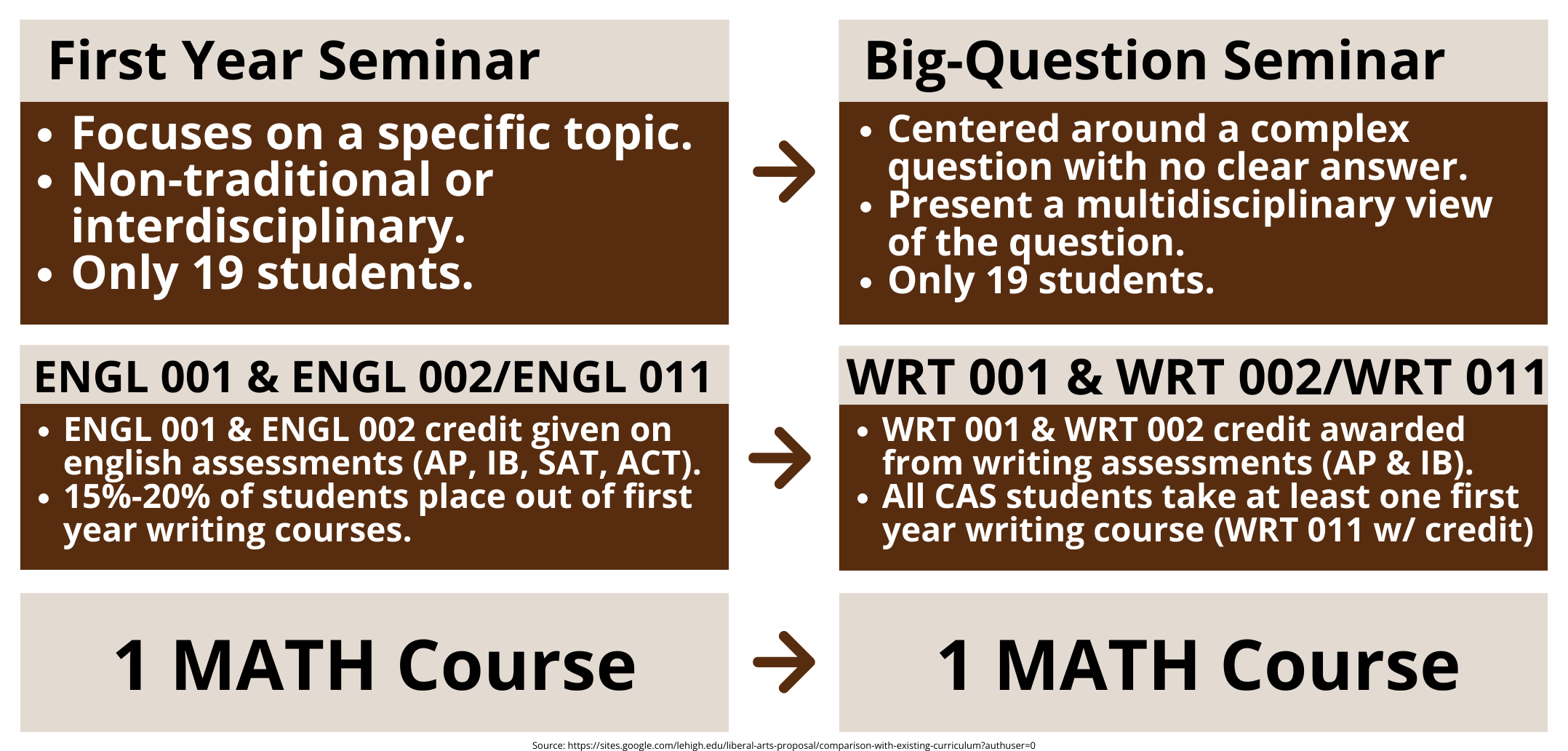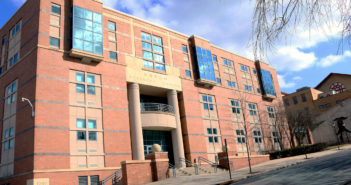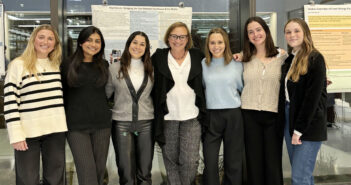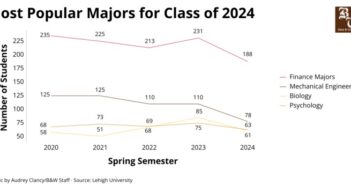An official proposal to change curriculum within the College of Arts and Sciences is moving closer to approval after its inception three years ago.
The changes, including modifications to first-year seminars, first-year writing courses and overall distribution requirements, stated in the proposal are hoped to go into effect in 2024 for Lehigh’s class of 2028.

The new curriculum requires all students to take a first year writing course and take big question seminars that explore complex topics. (Carl Freyer/B&W Data & Graphics)
Amanda Brandone, professor and co-chair of the General Education Committee, said the proposal has effectively gone through the College Policy Committee, a group of professors across multiple disciplines within the college, and was reviewed by every faculty member in the college. It will be presented to the university level Educational Policy Committee for review. In the event that it is approved by this committee, it will be further evaluated by the Faculty Senate.
Alongside Brandone, Steve Peters, professor and co-chair of the General Education Committee, authored the proposal. They said the other colleges at Lehigh will take part in reviewing the proposal specific to the College of Arts and Sciences, which will happen later this semester.
The first-year seminar program, which currently concentrates on a singular focused topic, will now be referred to as a “Big Questions Seminar.” There will be a stronger emphasis placed on asking and answering compelling questions across various disciplines.
Lily Sakellariou, ‘26, said she’s happy to hear the college will continue offering interesting seminars, as she found it was a great outlet to think outside of her core classes.
According to the proposal outline, students will continue to take a first-year English course, but they will now be referred to as Writing 001 and 002. These courses will focus more on writing instruction as a building block of the liberal arts education and less on the “academic discipline of English.”
Sakellariou said she thinks this will be a good change for the program, as she wishes she had more writing instruction in her English course.
Another addition to the curriculum is “Encounters,” which are opportunities within offered course listings to build on specific skills or themes. Students will be required to fulfill coursework in three Encounters: writing, quantitative reasoning and contemporary challenges.
Peters said current College of Arts and Sciences students may choose to opt into the new curriculum, although they are not required to. The curriculum will, however, affect the class of 2028.
Brandone said one of the driving forces of these changes is the current curriculum’s age, which was first implemented in the mid-1990s.
“Part of the initial motivation to even have conversations about a potential curriculum change was due to the fact that a lot has changed in 30 years,” Brandone said. “It’s time to think about how we want the general education of the College of Arts and Sciences to look.”
Brandone said they worked to maintain the strengths and identify the weaknesses of the existing curriculum.
She said the shortcomings of the current program were identified through conversations with other faculty members, surveys within the college and a college-level retreat focused on updating the curriculum.
One of these shortcomings, Brandone said, is the curriculum did not clearly articulate what its goals were.
“There’s not a lot of framing of how the classes taken come together and what the purpose is,” Brandone said. “One of our main goals was to state clear objectives of the curriculum.”
These new objectives include building critical intellectual skills, exploring diverse disciplinary perspectives and tools, and tackling big questions and contemporary challenges from multidisciplinary perspectives.
To set the goals of the new curriculum, Brandone said the first committee reviewed literature on general education, looked at higher education resources and consulted with Lehigh’s faculty about their aspirations for graduates from the college.
“Most of the curriculum is the same, but in the couple areas where there are differences, we think we will do a better job of evolving to stay current,” Peters said.
He said contemporary challenges can be more easily addressed with additions like Encounters. By design, Encounters is a way the curriculum can adapt in the coming years to emerging ideas and worldwide developments.
Peters said he thinks this part of the curriculum presents an exciting opportunity for students.
“We still encourage people to explore the diverse disciplines that are present here (at Lehigh),” Peters said. “One of the things that I’ve gained perspective on while being on this committee is just how many fantastic experts and wonderful people there are on this campus that want to share their passion with you as a student.”





Comment policy
Comments posted to The Brown and White website are reviewed by a moderator before being approved. Incendiary speech or harassing language, including comments targeted at individuals, may be deemed unacceptable and not published. Spam and other soliciting will also be declined.
The Brown and White also reserves the right to not publish entirely anonymous comments.